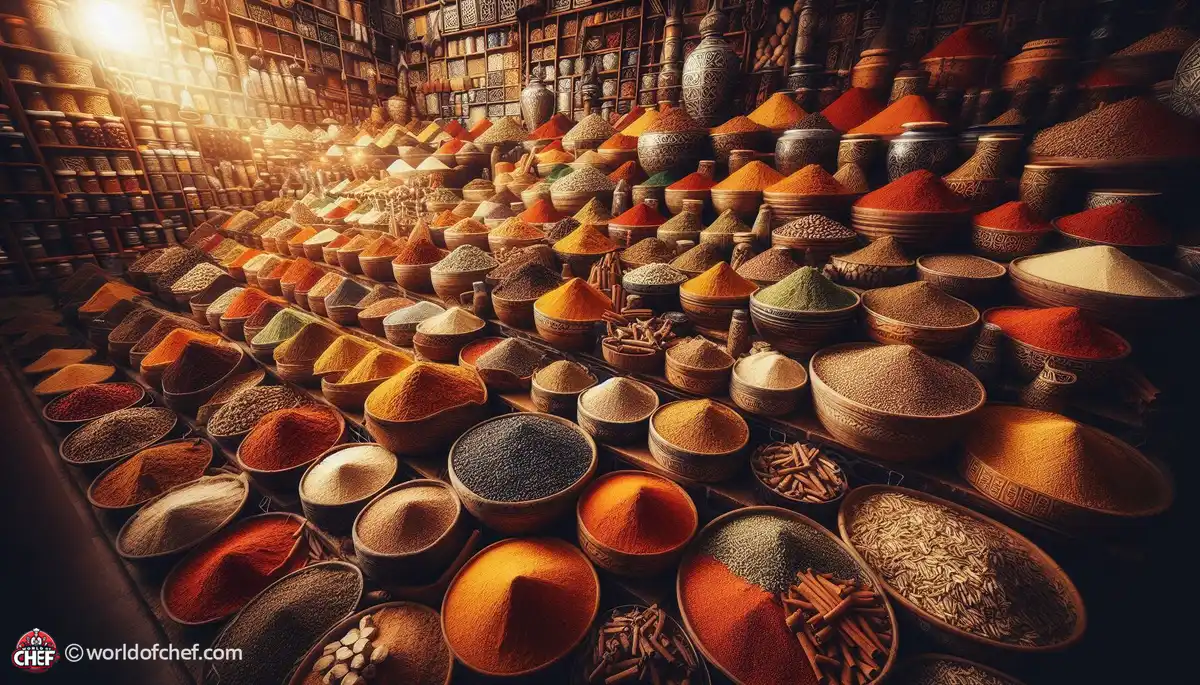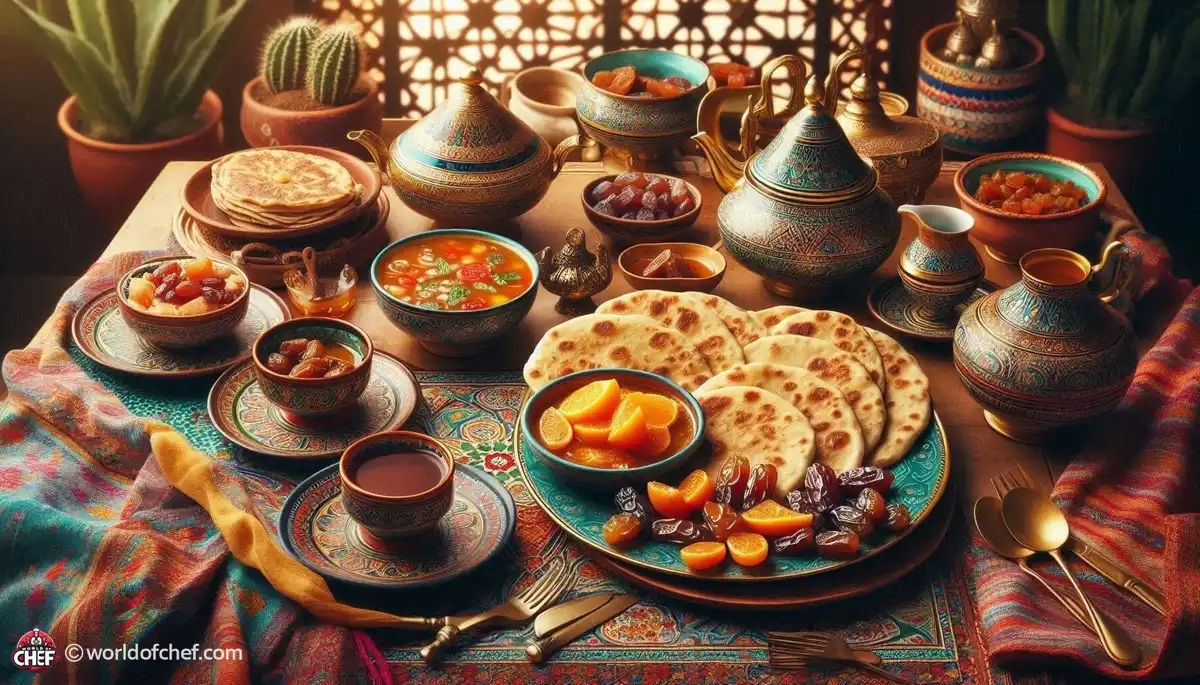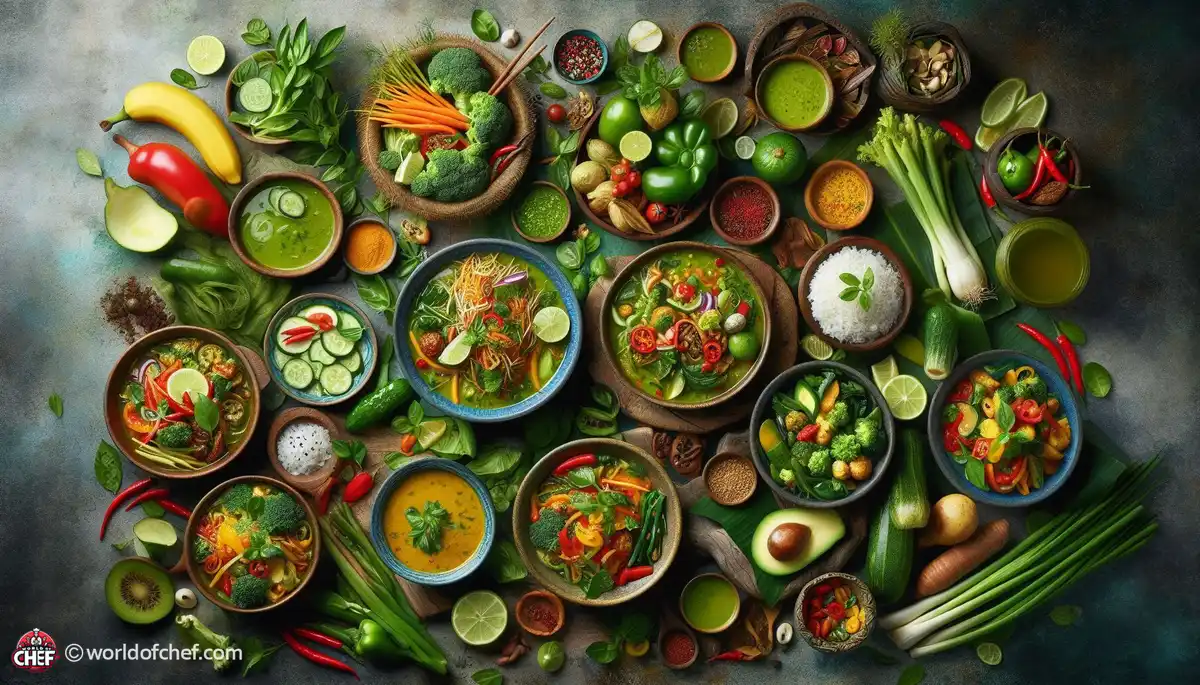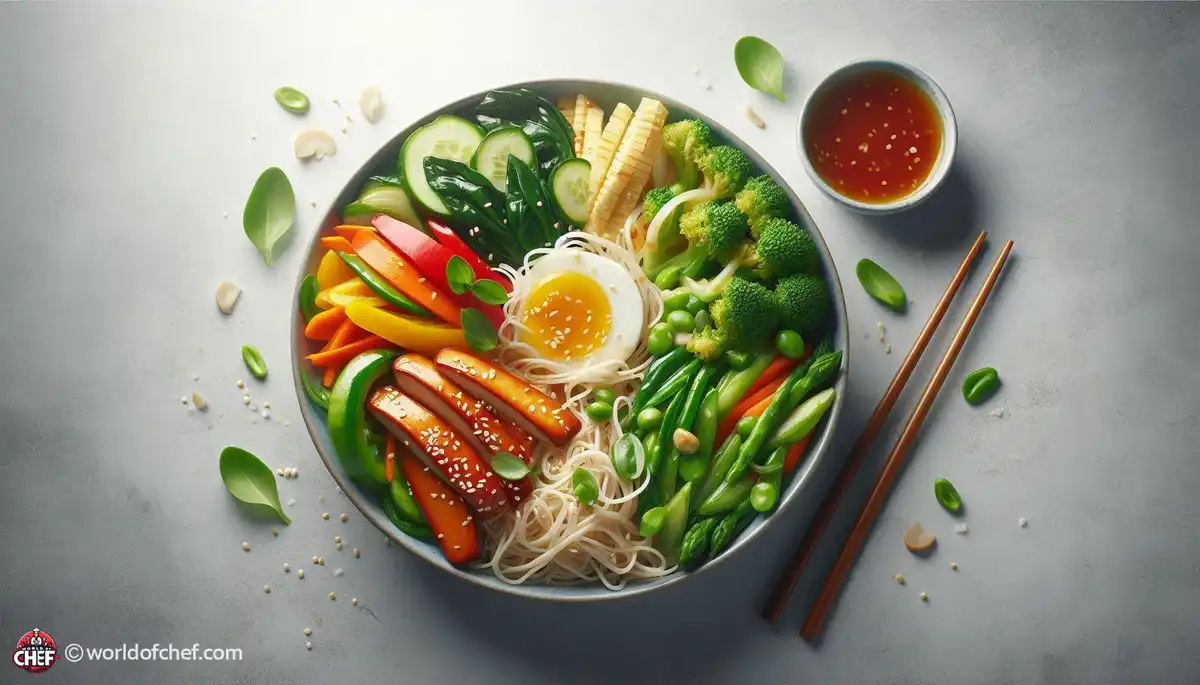
Unveiling the Secrets of Moroccan Spice Blends
Joel Spurgeon - Oct 5, 2024 - 7 min read


Ramadan, the holiest month in Islam, is observed by Muslims worldwide through fasting, prayer, reflection, and community gatherings. In Morocco, Ramadan is a time of profound spirituality and culinary delight. Moroccan cuisine, renowned for its aromatic spices and rich flavors, takes center stage during this sacred month. From hearty soups to delectable sweets, Moroccan Ramadan specialties offer a culinary journey that celebrates both tradition and innovation. Join me as we explore the vibrant world of Moroccan Ramadan cuisine, filled with recipes and traditions passed down through generations.
Ramadan holds immense significance in Moroccan culture, going beyond mere abstention from food and drink during daylight hours. It is a time for introspection, self-discipline, and strengthening one's relationship with Allah. Moroccan families gather for predawn meals known as suhoor, where they fuel themselves for the day ahead with nourishing dishes like harira soup and dates. As the sun sets, the call to prayer echoes through the streets, signaling the time for iftar, the breaking of the fast. This daily ritual is often shared with loved ones and neighbors, fostering a sense of community and solidarity.
In Morocco, fasting is not merely a physical act but a spiritual journey that encompasses mind, body, and soul. While abstaining from food and drink from dawn till dusk, Moroccans also focus on self-reflection, prayer, and acts of charity. However, the evenings are reserved for feasting, where tables groan under the weight of sumptuous dishes that tantalize the senses. Moroccan cuisine is renowned for its diversity, influenced by centuries of trade, conquest, and cultural exchange. During Ramadan, this culinary heritage takes center stage, with families preparing a lavish spread of traditional delicacies to break their fast.
Harira, a hearty and nourishing soup, holds a special place in Moroccan cuisine, especially during Ramadan. This aromatic dish, brimming with lentils, chickpeas, tomatoes, and fragrant spices, is a staple on iftar tables across the country. It serves as a comforting start to the evening meal, providing sustenance after a day of fasting. Each family has its own cherished recipe for harira, passed down through generations, with variations based on regional preferences and personal taste.
B'stilla, also known as pastilla, is a culinary masterpiece that blends sweet and savory flavors in perfect harmony. This iconic Moroccan dish features layers of thin pastry filled with a succulent mixture of shredded chicken or pigeon, almonds, eggs, and a delicate blend of spices, including cinnamon and saffron. The pie is then baked to golden perfection and dusted with powdered sugar and cinnamon, creating a symphony of flavors and textures that delights the palate. B'stilla is traditionally served during special occasions and festive gatherings, making it a fitting addition to Ramadan feasts.
Chebakia is a beloved Moroccan sweet that takes center stage during Ramadan. These intricately shaped pastries are made from a dough infused with orange blossom water, sesame seeds, and a hint of anise. After frying to a golden crisp, they are dipped in a fragrant honey syrup, imparting a sticky sweetness that is utterly irresistible. Chebakia is not only a treat for the taste buds but also a feast for the eyes, with its intricate floral shapes symbolizing the beauty and abundance of Ramadan.
Sellou, also known as sfouf or zamita, is a traditional Moroccan dessert that holds a special place in Ramadan celebrations. This unique confection is made from a blend of toasted sesame seeds, almonds, flour, and spices, including cinnamon and anise. The mixture is then sweetened with honey and shaped into small balls or discs, creating a dense and nutty treat that is packed with flavor and texture. Sellou is prized for its nutritional value and energy-boosting properties, making it the perfect indulgence after a day of fasting.
Hospitality lies at the heart of Moroccan culture, especially during Ramadan. It is a time when doors are thrown open, and neighbors, friends, and strangers are welcomed with open arms. Moroccan families take pride in preparing elaborate iftar feasts, not only for themselves but also for those in need. Charity and generosity are integral aspects of Ramadan, with individuals and communities coming together to share blessings and alleviate the suffering of the less fortunate.
Sadaqah, or voluntary charity, is an essential part of Ramadan observance in Morocco. From donating food to organizing communal iftars for the needy, Moroccans embrace the spirit of giving wholeheartedly during this blessed month. Sadaqah is not only a means of fulfilling religious obligations but also a way of strengthening social bonds and fostering empathy and compassion within the community. Through acts of kindness and generosity, Moroccans seek to emulate the spirit of Ramadan and spread love and goodwill to all.
While Traditional Recipes form the cornerstone of Moroccan Ramadan cuisine, there is also room for innovation and creativity. In recent years, chefs and home cooks alike have been experimenting with new flavors and techniques, infusing Classic Dishes with modern twists. From fusion iftar menus to innovative dessert creations, Moroccan Ramadan cuisine continues to evolve while staying true to its rich culinary heritage.
Moroccan cuisine is a melting pot of flavors and influences, reflecting centuries of trade, migration, and cultural exchange. During Ramadan, this diversity is celebrated as Moroccans draw inspiration from global culinary traditions to enrich their iftar tables. Dishes like couscous, tagines, and baklava coexist alongside traditional Moroccan specialties, creating a rich tapestry of flavors that reflects the country's vibrant cultural mosaic.
Ramadan is a time of profound spirituality, reflection, and culinary indulgence in Morocco. From the heartwarming comforts of harira soup to the exquisite sweetness of chebakia, Moroccan Ramadan specialties offer a sensory journey that delights the palate and nourishes the soul. Through cherished recipes and timeless traditions, Moroccans come together to celebrate the blessings of this sacred month, embracing the spirit of generosity, hospitality, and community. As the sun sets and the call to prayer fills the air, Moroccan families gather to break their fast and share in the abundance of food and fellowship, reaffirming the bonds of kinship and faith that unite them.

Joel Spurgeon - Oct 5, 2024 - 7 min read

Aaliyah Martini - Oct 5, 2024 - 6 min read

Jesse Brownell - Oct 5, 2024 - 7 min read

Taylor Damon - Oct 4, 2024 - 20 min read